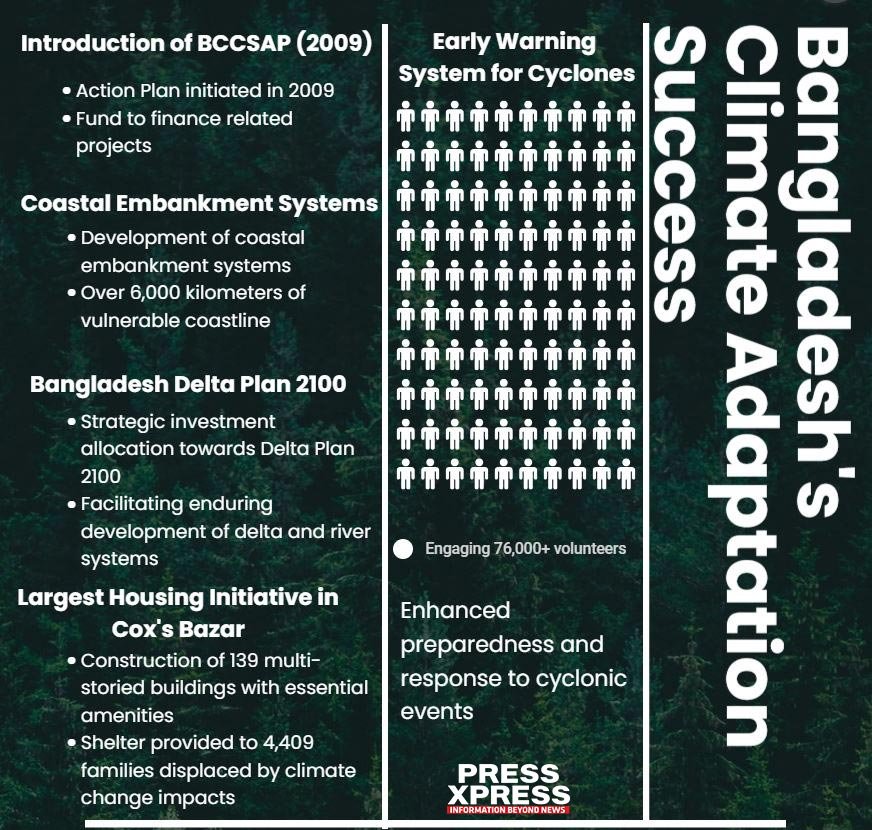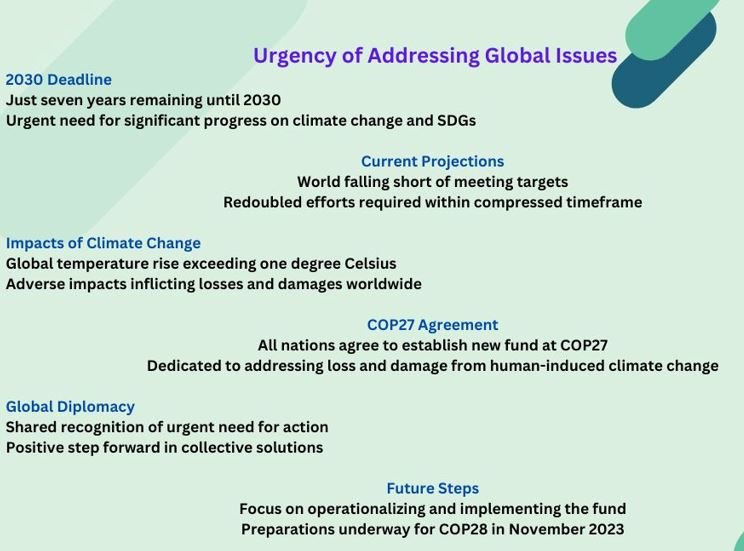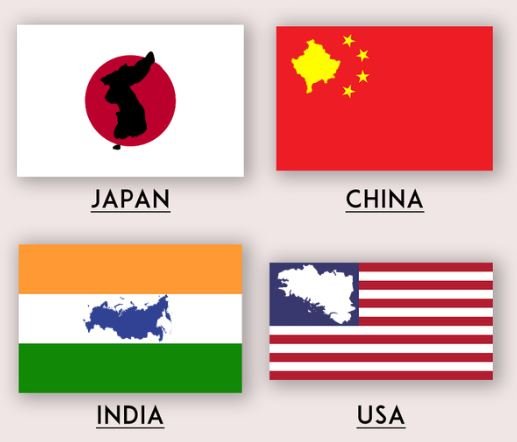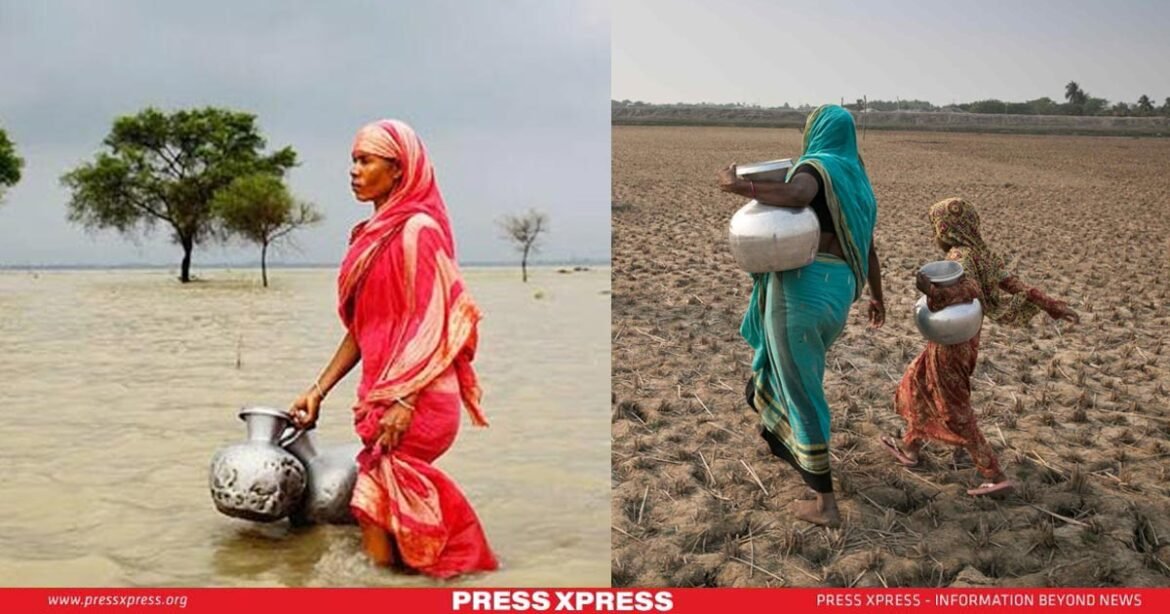- One-third of population faces potential displacement from rising sea levels.
- Ranked in the top ten most affected nations by extreme weather events (1998-2017)
- Calls for robust collaboration between Indo-Pacific nations and the European Union
Climate change poses a significant threat to Bangladesh, with one-third of its population facing potential displacement from rising sea levels. The Global Climate Risk Index places the country in the top ten nations most affected by extreme weather events from 1998 to 2017, with associated losses averaging 1.8 percent of GDP annually between 1990 and 2008.
You Can Also Read: 2023, THE HOTTEST YEAR EVER RECORDED IGNITES CLIMATE CONCERNS
Recently, Foreign Minister Dr. Hasan Mahmud has emphasized the urgent need for robust cooperation among nations in the Indo-Pacific region and the European Union (EU) to address the critical challenges posed by climate change. His remarks came during the 3rd EU Indo-Pacific Ministerial Forum held in Brussels, Belgium, where over 100 delegates from EU member states and Indo-Pacific nations convened to discuss strategies for sustainable development and environmental conservation.
At the roundtable discussion titled “The Green Transition – Partnering for a Sustainable Future”, Dr. Hasan Mahmud showcased Bangladesh’s proactive efforts in climate change mitigation, adaptation, and green transition. He highlighted the government’s commitment to harnessing clean and renewable energy sources to drive economic growth while minimizing environmental impact. Additionally, he advocated for research, innovation, and investment to promote the adoption of environmentally friendly alternatives such as jute and green hydrogen.

Bangladesh’s Climate Agendas
Bangladesh has admirably addressed its climate adaptation gap, setting a commendable example for other nations to emulate. Since the introduction of the Bangladesh Climate Change Strategy and Action Plan (BCCSAP) in 2009, and the establishment of the Climate Change Trust Fund to finance BCCSAP-related projects, the country has showcased a proactive stance in the battle against climate change.
A suite of proactive policies and investments has been implemented by the government to fortify resilience against climate-related disasters, leveraging the power of community-led initiatives. Consequently, coastal embankment systems have been developed to safeguard more than 6,000 kilometers of vulnerable coastline, alongside the establishment of an early warning system for cyclones that engages over 76,000 volunteers.
Through strategic investment allocation and the implementation of the Bangladesh Delta Plan 2100, the government aspires to facilitate the enduring development of the country’s delta and river systems, fostering responsible management of water and land resources over the long term.
The realization of the largest housing initiative for individuals displaced by climate change in Cox’s Bazar stands as a testament to Bangladesh’s commitment. With the construction of 139 multi-storied buildings equipped with all essential amenities, shelter has been provided to 4,409 families affected by climate change impacts.

Bangladesh’s key role in combating climate change
As we step into the third year of this decade, the urgency of addressing major global issues such as climate change and the Sustainable Development Goals (SDGs) becomes even more apparent. With just seven years remaining until 2030, the pressure mounts to make significant progress. Unfortunately, current projections suggest that the world is falling short of meeting its targets, necessitating redoubled efforts to achieve them within this compressed timeframe. Failure to do so will result in substantial losses and damages for people worldwide, irrespective of their economic standing.
The year 2022 marked a crucial turning point in the discourse surrounding climate change. The Intergovernmental Panel on Climate Change (IPCC) underscored the undeniable reality of human-induced climate change, attributing adverse impacts to the global temperature rise exceeding one degree Celsius. These impacts, in turn, are inflicting losses and damages across nations, highlighting humanity’s entry into an era defined by the consequences of our actions. Despite this sobering realization, no country is adequately prepared to address these ramifications.
However, amidst these challenges, a glimmer of hope emerged at the 27th Conference of Parties (COP27) of the United Nations Framework Convention on Climate Change (UNFCCC) held in November 2022 in Egypt. In a landmark decision, all participating nations unanimously agreed to establish a new fund dedicated to addressing loss and damage caused by human-induced climate change. This breakthrough represents a significant victory for vulnerable developing countries like Bangladesh, which had long advocated for such measures without success.
The catalyst behind this unprecedented consensus was the stark reality of visible impacts witnessed globally, exemplified by events like the devastating floods in Pakistan. This shared recognition of the urgent need for action propelled countries, including those who had previously opposed such initiatives, to come together in support of collective solutions. While this agreement marks a positive step forward in global diplomacy, much work lies ahead in terms of operationalizing the fund and ensuring its effective implementation. These objectives remain at the forefront of discussions as nations prepare to convene for COP28 in November 2023 in Dubai.
Expanding Economic Horizon
The Indo-Pacific region’s growing economic importance, driven by substantial economic expansion in countries like China and India, has positioned it as a focal point of international economic activity. This presents significant opportunities for developing nations like Bangladesh to leverage the region’s vast potential for commerce and investment. Additionally, the Indo-Pacific plays a crucial role in geopolitics, being home to strategic actors such as-
- China
- India,
- Japan and
- United States

For Bangladesh, engaging with the region and its major players offers prospects for economic growth, development, and enhanced diplomatic positioning. The country’s involvement in the region’s economic and strategic dynamics not only fosters collaboration and partnership but also contributes to regional peace and security. Bangladesh’s strategic pivot to the Indo-Pacific reflects its efforts to capitalize on the region’s economic significance, particularly in areas such as infrastructure, services, and manufacturing, to further its economic development and attract foreign investment.
In recent years, the Indo-Pacific region has seen a significant rise in its importance for both international trade and security. It serves as a pivotal hub for nations seeking to safeguard their economic growth and stability, given its status as the home to some of the world’s fastest-growing economies and vital trading routes. Moreover, strategically, the region holds immense significance as it hosts key chokepoints such as the South China Sea and the Malacca Strait. These chokepoints are indispensable for major global powers as they facilitate the movement of energy and trade worldwide.
In discussions with all four counterparts, Dr. Hasan Mahmud emphasized the importance of addressing the Rohingya crisis and reiterated the need for repatriation of forcibly displaced individuals to Rakhine State. He called upon the international community to exert pressure on Myanmar to facilitate a lasting solution to the humanitarian crisis.
In conclusion, Dr. Hasan Mahmud’s participation in the EU Indo-Pacific Ministerial Forum underscored Bangladesh’s commitment to global climate action and sustainable development. Through collaborative efforts and diplomatic engagement, Bangladesh aims to contribute to a greener, more resilient future for generations to come.


